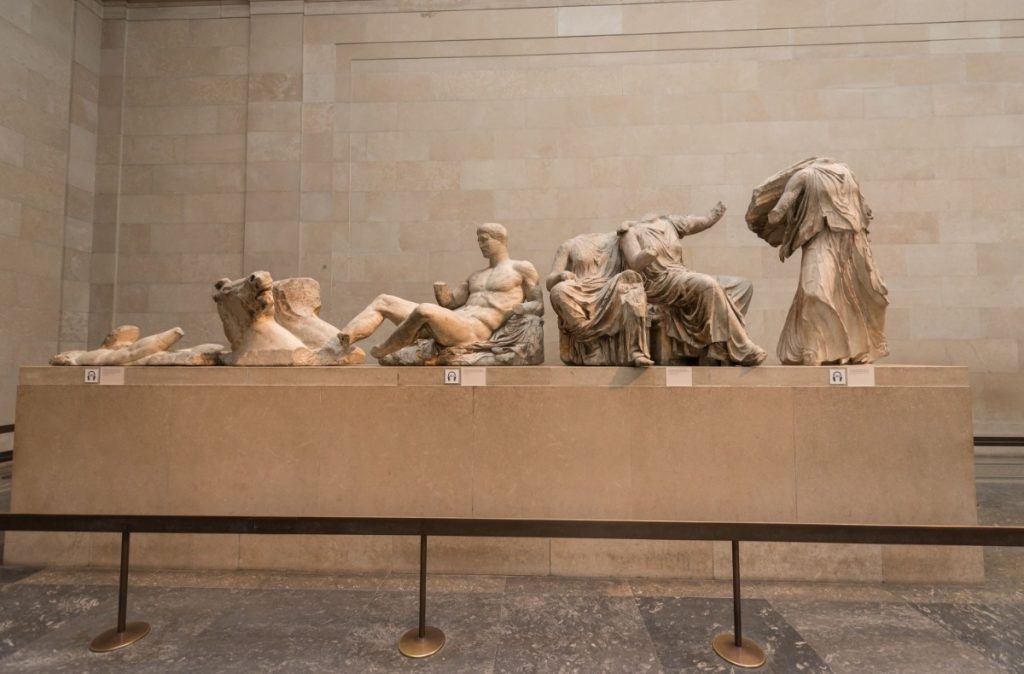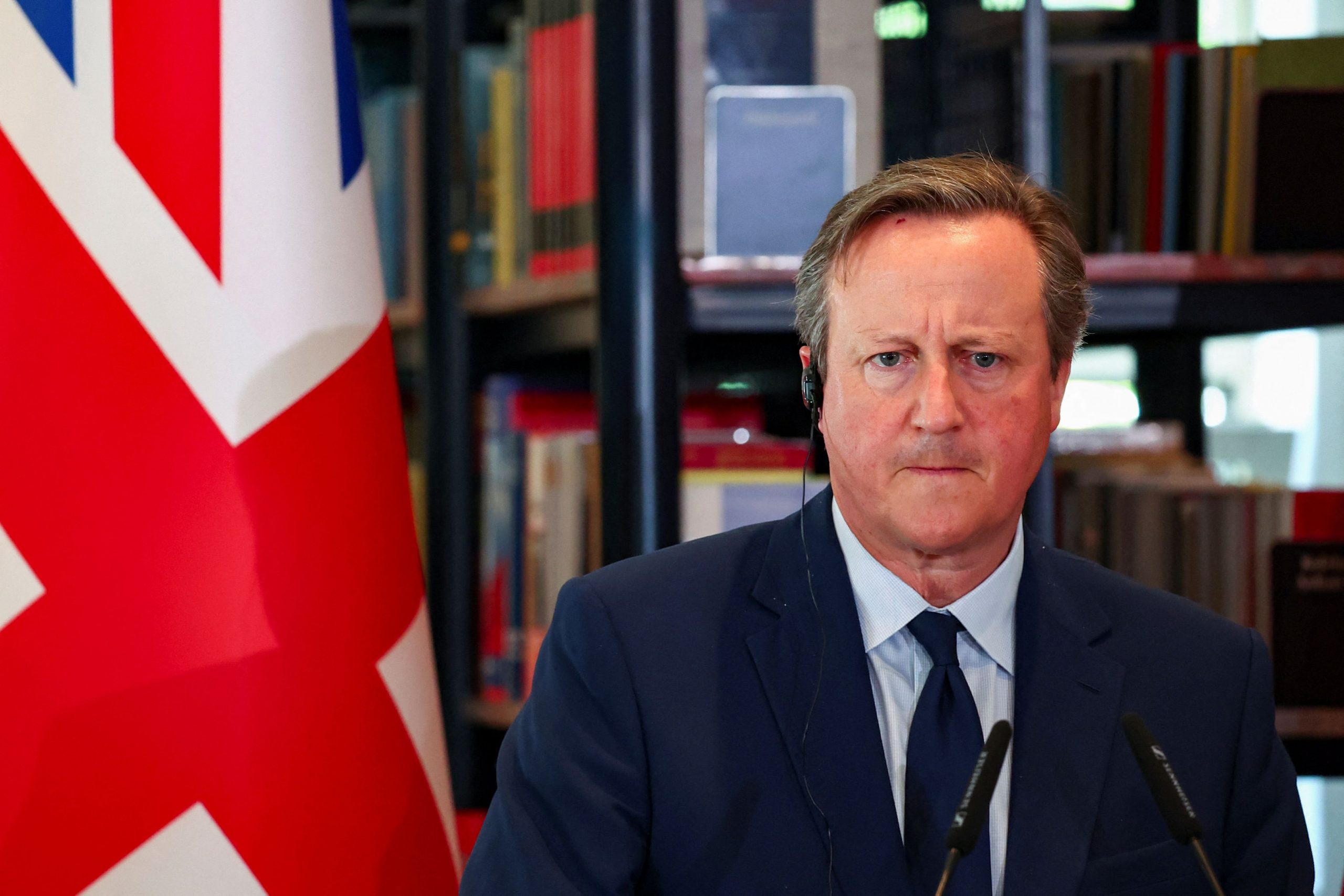The possibility of the Parthenon Marbles being returned to Greece was ruled out by British Foreign Secretary David Cameron, speaking to TA NEA. Fully aligned with Rishi Sunak’s position in favor of keeping Phidias’ masterpieces in London, he ruled out any discussion on the future of the “Elgin Marbles”, as he called them, while avoiding any mention of the recent UNESCO meeting at which the British argument centered on the firman supposedly acquired by Lord Elgin was ripped apart. When asked about the negotiations between the President of the British Museum and Kyriakos Mitsotakis, the British minister chose to… be ironic about George Osborne.
“I support the British government’s position on the Elgin (sic) Marbles, which has been clearly stated by the Prime Minister,” Lord Cameron said yesterday in response to a question from TA NEA during a meeting with international media at the Foreign Press Association (FPA) in London. Shortly afterwards, he referred to statements made last year by Rishi Shunak in which the politician rejected the prospect of reuniting the ancient Greek artifacts, which he called a “huge asset” for Britain. “The UK has cared for the Elgin Marbles for generations,” the British Prime Minister said then, making it clear that “the collection of the British Museum is protected by law, and we have no plans to change it.”
The UNESCO session
Asked by TA NEA what he had to say about the statement made to UNESCO by Ankara’s representative that no firman was ever issued permitting Lord Elgin to hack the sculptures off the Temple of Athena, 57-year-old Cameron—who served as British Prime Minister from 2010 to 2016—claimed… ignorance: “I haven’t seen the report from the UNESCO session, so I cannot comment on that issue.” However, a Conservative source later stressed that “of course Cameron was aware of the UNESCO discussion, he just chose not to mention it as the controversial statement contradicts the British position.” It will be recalled that Zeynep Boz, head of the Department for Combating Illicit Trafficking in Cultural Heritage at the Turkish Ministry of Culture, said during the session of the UNESCO Intergovernmental Committee for Promoting the Return of Cultural Property (ICPRCP) that there is no evidence whatsoever that Elgin obtained permission from the Ottoman authorities to remove the Parthenon frieze.
Asked by TA NEA whether he agreed with the strategy being pursued by the President of the British Museum, George Osborne (who served as Finance Minister in Cameron’s Cabinet) of negotiating the possible return of the Marbles with the Greek Prime Minister, the British Foreign Secretary replied with sarcasm: “George Osborne is responsible for his own podcast,” he said by way of declining to comment. This was a reference to “Political Currency”, the online radio show which Osborne presents and on which he has expressed the hope on at least two occasions “that an agreement will be reached between the British Museum, the Greek government, and the Acropolis Museum.”
This is not the first time that Cameron, who took over as Foreign Secretary seven months ago, has spoken out against the repatriation of the Marbles. Last December, he was asked by Lord Dobbs, the author of House of Cards and a member of the Parthenon Project, the organization seeking a “win-win” solution for the sculptures, whether he believed that their return would help improve Greek-British relations after the “diplomatic incident” caused by the last-minute cancellation of the Sunak-Mitsotakis meeting. “I don’t agree with what he [Dobbs] says about the Elgin Marbles,” he told the House of Lords.
And as Prime Minister
But even as prime minister, he dismissed the reunification of the treasures of classical antiquity on two separate occasions. In June 2011, in a misplaced attempt at humor, he declared that he would “not allow Britain to lose its Marbles”, adding “I’m afraid I don’t agree (with their return),” in response to a question from Liberal Democrat MP Andrew George. Two years later, he reiterated his position: “I don’t think that is the right approach (meaning their return). No, I certainly don’t believe in ‘returnism’.”
Lord Cameron’s unexpected return to active politics aroused a flurry of commentary last November. It was widely believed that the former Conservative leader had been put out to grass following his resignation as prime minister in July 2016, when Leave won the Brexit referendum. Although he resigned because he had supported remaining in the EU in 2016, he defended Brexit at yesterday’s press conference. In addition, he appeared optimistic that “the Tories can win the election on July 4”, despite the polls indicating that Labour are heading full steam ahead for Downing Street and Cameron for another ousting, this time from the Foreign Office.








